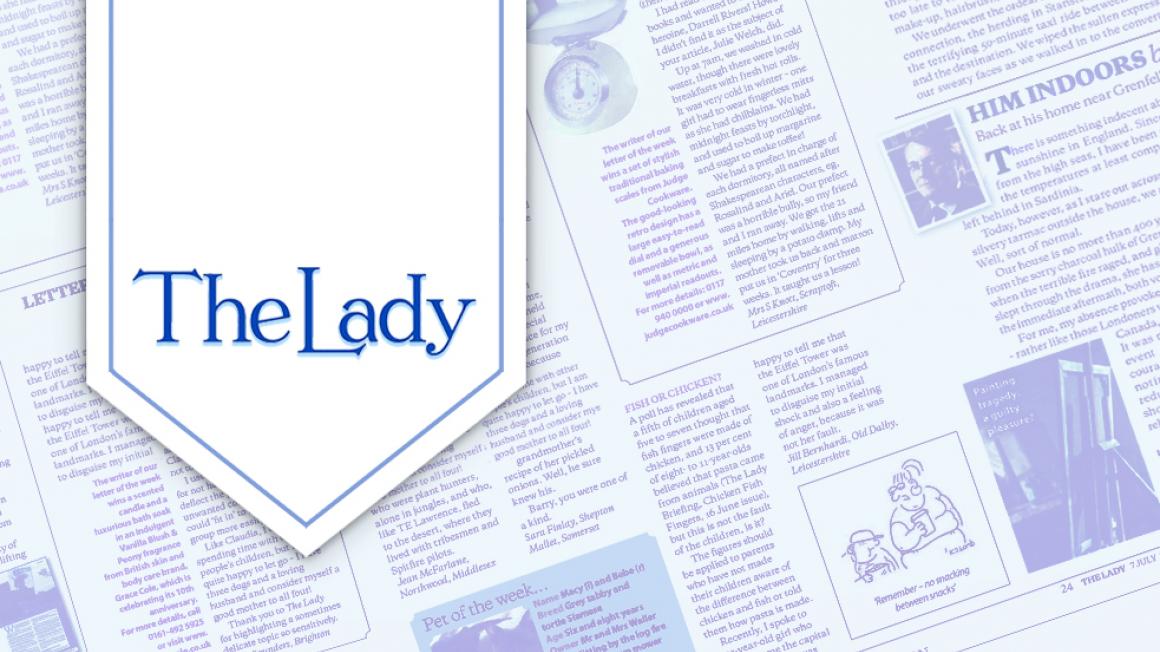The Lady Guide to Modern Manners: 5 July
Last week my granddaughter said, ‘Are you guys coming for tea?’ She was referring to me and my husband, her grandfather, but we were quite flummoxed. I’m not sure I want to be a ‘guy’. While we’re on the subject, my husband says he also objects to being addressed as ‘mate’ by ticket inspectors on the railway.
June Gray, Dulwich
Dear June,
I touched on the subject of what we should call each other a week or two ago. There was quite a furore. A lot of people wrote in, insisting that title plus surname is the only respectful form of address. So where is the boundary between respect and over-familiarity?
‘Guys’, as a unisex vocative, comes from America via television, as far as I know. For this reason alone it’s annoying. That aside, it shouldn’t be too difficult for your granddaughter to work out that you might not care to be hailed in the manner of the prime-time soaps so beloved of teenagers.
You could even drop hints: ‘You’ll have to explain “guys”, I’m afraid. Am I a “guy” as well as your grandfather?’
I bristle at ‘bloke’ as well as ‘guy’, ‘dude’ and ‘man’. Women are less frequently addressed or referred to in these joshing, faintly insulting ways but it’s often difficult to know whether to say, ‘This lady would like a scone’ (could be condescending) or ‘This woman…’ (which sounds rude to me), or ‘this young lady… young woman… person…’
As the brilliant novelist and professor, Philip Hensher, pointed out in his recent lecture at Birkbeck College, it’s much easier if you’re French or German. Then everyone is ‘Sir’ or ‘Madam’ or ‘Doctor’ or ‘Engineer’, as required.
Here, we’re all at sea – ‘Sir’ and ‘Madam’ for any unknown person and ‘lady’ or ‘gentleman’ when referring to them in their presence. But these terms have got all tangled up with class-consciousness, feminism and old-fashioned-ism. Yes, I know there will be letters, but that’s what some people think. I’m not saying they’re right but we can’t ignore them.
Professor Hensher has an aversion to ‘mate’. I agree that ticket inspectors on trains should not address passengers as ‘mate’, not least because we don’t want them to be matey, we want them to pitch all the scroungers out of First Class who refuse to pay the supplement on a Sunday.
Otherwise, when lobbed by shop assistants at customers, ‘mate’ is a hostile claim to equality where there is none. So we come back to class again, which is a great trial to our nation. The whole question of what to call people is a minefield that will torment us for many years to come.
Please send your questions to Thomas.blaikie@lady.co.uk or write to him at The Lady, 39-40 Bedford Street, London WC2E 9ER
WHAT TO DO… BOASTING OF SECOND HOMES
I met some people at a party on Saturday who said they spent half the year in Kenya.‘Which half?’ I asked. ‘Which half do you think?’ they said. I was riled because: 1) I don’t like the English winter disparaged. 2) The whole thing about the second home in Kenya was annoying.
I was reminded of a story years ago about a school where staff with holiday homes abroad were asked not to refer to them in the staff room. Yet people can’t help but mention their villa in Spain or Bulgaria or their ‘flatti’ in Antibes. I met a woman who had a place near Carcassonne and was perfectly nice, even though she mentioned it. What’s more, the ‘apartment’ might be no more than a cardboard cupboard with sea views only if you stand on a stepladder in the bedroom and crane your neck out of the window at risk of death.
You can comfort your envy by recalling Joyce Grenfell, who, when offered a country cottage by her husband, said, ‘No, because we’d have to go there’.



